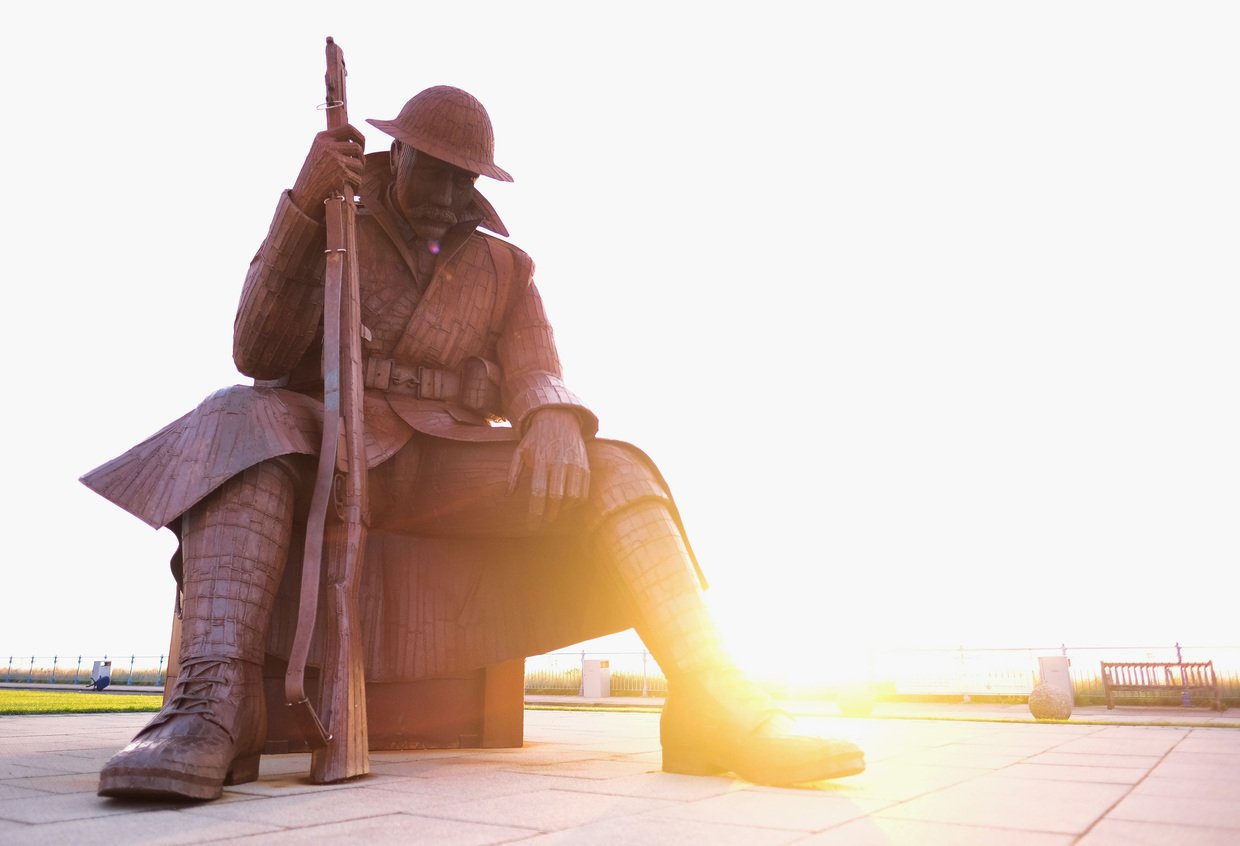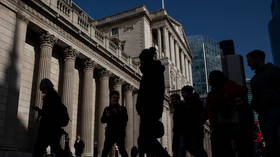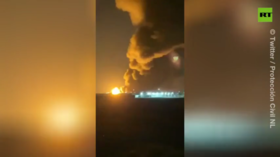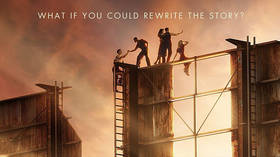Don’t scoff at working-class VE Day celebrations – for us, it’s still the army or the pit

The ‘educated’ sections of the UK middle class’ snobbish glances at the Union Jacks and St. George flags flown by the working class for VE Day is a display of lacking empathy and unwillingness to understand our communities.
Victory in Europe Day is a big anniversary this year – 75 years since the day that fascism in Europe was defeated and a new hope of a tyranny-free world dawned on the horizon. It was, sadly, not realized, but it was a hopeful moment when people wanted to believe that their sacrifices and the horrors of war would mean a fairer future. It is an admirable day to remember and observe – not least because, as the human race, we should and can never forget where prejudice, fear, greed, and unbridled run away power can take a society.
Also on rt.com Hitler would've loved the Covid-19 blame games. Let's not let the pandemic spoil Victory DayThis year, I will be observing this memorial because those who lived through the war, those who faced the real fears of fascism and directly suffered and sacrificed, are not visible because they are shielding indoors and in care homes against the Covid-19 pandemic.
Personal memories, not national narrative
For their sake, it is right for VE Day to take place. However, in the UK at least, any memorial day connected to war has been about military action and the royal family, rather than remembering the ugly face of war that is always unwanted by any population and yet is usually foisted upon them by a few that crave power. Nation states have used these days to push their own national narrative, forgetting the ugliness and choosing an often toxic selection of the truth.
I live in a small town in the northeast of England – a place where every shop, pub, and public space has red poppies in pride of place. The slogan ‘In Remembrance – Lest We Forget’ is everywhere and sits comfortably with tributes to the three coal mines that once stood there.
In May 2014, a piece of public art formed from corten steel weighing 1.2 tons and almost 3m tall, officially named 1101 (or Eleven-O-One), was temporarily displayed in this town. The name is a reference to the first minute of peace after World War I, as the armistice came into force at 11am on November 11, 1918. The town did not want to see what they fondly called ‘Our Tommy’ leave, so a committee of local residents raised £102,000 ($126,800) and bought him. Our Tommy now sits in the center of the town and is loved by the locals, with families coming to see him, and children running up to hug him.

It is easy – as we saw in the Brexit arguments – to purposefully misrecognize these public shows of love and pride by working-class communities as nationalism, easily seen through by the educated and free-thinking middle class. Yet in fact this narrative is a display of middle-class carelessness and cultural snobbism.
The army or the void – a tough choice
Recently my son has written about his experiences of being a working-class, mixed-race boy leaving school at 16 in the 2000s. His school employment advisers offered him a choice between warehouse work and joining the army. I hadn’t known about this before, and I was filled with deep sadness that my son had been faced with the same Hobson’s choice that my granddad and his great-granddad had been offered in the 1930s – the British Army or down the pit. My son eventually fell into a low-paid retail job, and my granddad had joined the British Army – becoming wounded at Dunkirk and sent down the pit when he was no longer useful to the war effort.
No one in my family has ever had time for British or English nationalism, for flags, or false narratives about the glorious war dead. Yet for working-class boys, their limited choices have always meant that dying for your country has always been pushed as the only option of escaping the void of what it means to be a working-class man. My son faces the same uncertain future as his great granddad – low pay, and a slow crushing of his spirit as opportunities and hope are removed from him.
I am tired and angry that my granddad’s contribution is sneered at by those that could not walk a day in his shoes – or now my son’s shoes. Those that have no concept or idea of what it feels like to look out into your future and see nothing but the void of uncertainty, poverty, or even worse, the certainty that you work to live in poverty. Let’s be honest – working-class men join the army, working-class men have always joined the army – to escape that.
Also on rt.com The lesson of WWII? ‘Industrialized mass murder’ only possible when people stop questioning narratives, Werner Herzog tells RTPaul Gilroy, an academic who once wrote a brilliant book titled ‘There Ain’t No Black in The Union Jack’ in the 1980s, followed up this work about race and class in Britain with the concept of postcolonial melancholia – the supposed feelings of white British people longing for a time of empire and glory, this narrative was embraced uncritically by the middle class and could not be further from the truth when it comes to the working class. Working-class people in Britain have always been equally as expendable to the empire as the working class was in India, the Caribbean, and in Africa.
This weekend, as working-class communities all over the United Kingdom put out the bunting – the Union Jacks will be flying – what they are most likely remembering are the contributions and sacrifices of their own families – at one of the few times they are legitimately allowed to do so. Our elderly who faced the realities of fascism, tyranny, and genocide are currently out of sight but they should not be out of our thoughts – we need to care for them, and not allow them to be expendable again during this pandemic, and think forwards about our working-class children. Must we have another generation that has nothing but the void in front of them?
If you like this story, share it with a friend!
The statements, views and opinions expressed in this column are solely those of the author and do not necessarily represent those of RT.
















